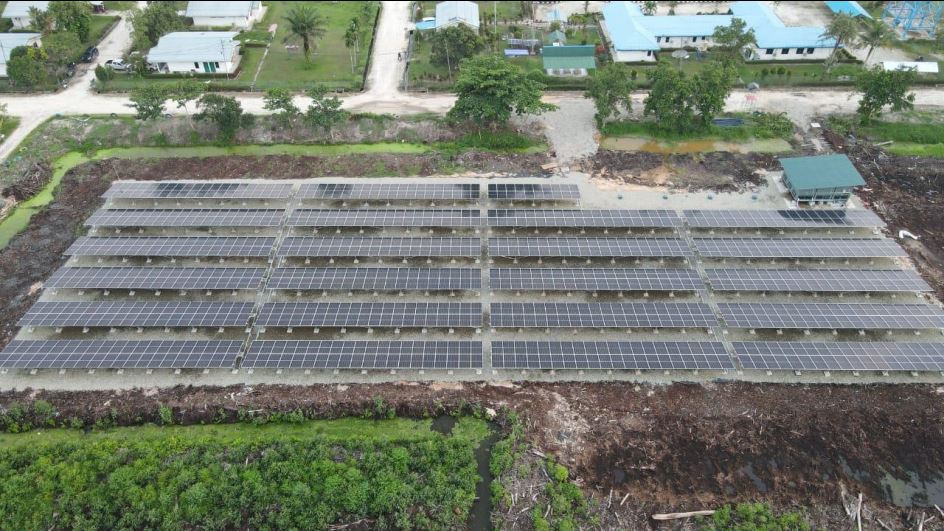APRIL Pursues Commitment to Double its Solar Ambition to 50MW by 2030
- In the last five years, APRIL has increased its clean energy investments, aiming for 50MW of solar generation capacity to support the company’s goal of sourcing 90% of its mill energy and 50% of its fibre operations’ energy from renewable sources.
- This journey aligns with APRIL’s broader commitment to reduce the emission intensity of its products – pulp, paper, packaging and viscose, and is part of its efforts to achieve ambitious goals in net zero emissions from land use and its carbon footprint reduction by 2030.
APRIL Group continues to ramp up its on-site solar generation capacity to supply renewable energy for its pulp, paper, packaging, and viscose operations with a new target of 50MW of solar power by 2030. The company also plans to extend this solar initiative to 23 of its 33 main plantation estates.
APRIL’s solar journey, started five years ago, is part of its ambitious targets to generate 90% of the energy required at its mill and 50% of the energy needs of its fibre operations – planting, harvesting and transport across over 450,000 hectares of commercial plantations – from renewable and cleaner sources by 2030.
APRIL’s plans will contribute to the achievement of its 2030 target to reduce its emissions intensity by 25%. In turn, this will help APRIL to play its part in supporting the Indonesian government to achieve its FOLU (Forestry and Other Land Uses) Net Sink 2030 targets and ultimately, reaching net zero carbon emissions by 2060.
As at December 2023, more than 88% of the energy consumed at APRIL’s mill comes from renewable and cleaner sources. These include biomass and by-products from the company’s production facility, such as black liquor, sludge and methanol.
The solar rollout at APRIL began with a 1MW installation, mounted on a previously unusable landfill area that was completed in 2021. Over the past five years, the cost of solar power has come down drastically, which has allowed APRIL to accelerate its solar energy rollout to 13.5 MW by the end of 2023 – growing the proportion of renewable energy in the company’s overall energy mix.

Capacity has been further boosted by installing panels on the roof of the new paperboard production facility that was commissioned earlier this year. This has taken total capacity to 26.3 MW as at October 2024, meaning the original target of 25 MW by 2030 has been reached. This has enabled APRIL to double its target to 50MW by 2030.
Last month, Anderson Tanoto, Managing Director of RGE, spoke about the role of solar power in supporting the energy transition pursued by RGE and APRIL.
Speaking at the Indonesia International Sustainability Forum 2024, he said: “Five years ago, there was this beautiful conflux of coal prices going high, solar panel prices coming down, and there was an economic reason to invest in solar panels. Fast forward, five years later, we’ve installed solar panels across our landfill permits, and we’re able to actually generate good returns on investment on these projects.”
APRIL has now identified an opportunity to rollout solar panels at the remote offices that run in some of the 33 plantation estates spread around Riau Province. These are currently powered by diesel generators and require regular fuel deliveries.
In December 2023, managers took the first step of setting up a 0.5MW trial solar installation and BESS 500KWH at the Pelalawan estate, including five hours of direct power from solar panels, and an extra 2 hours of battery capacity. The trial was a success, leading to a reduction in diesel consumption of over 40%.
It also gave vital insights into the technical aspects of the system’s performance and provided the data and experience needed to begin installing panels at more estates. These will have more advanced panels and bigger batteries, with enough capacity for 12 hours of power.
“In parallel, we are working on more areas for next year in phase 2,” said Tigor Sardison, the project manager at Pangkalan Kerinci in charge of the solar rollout.




